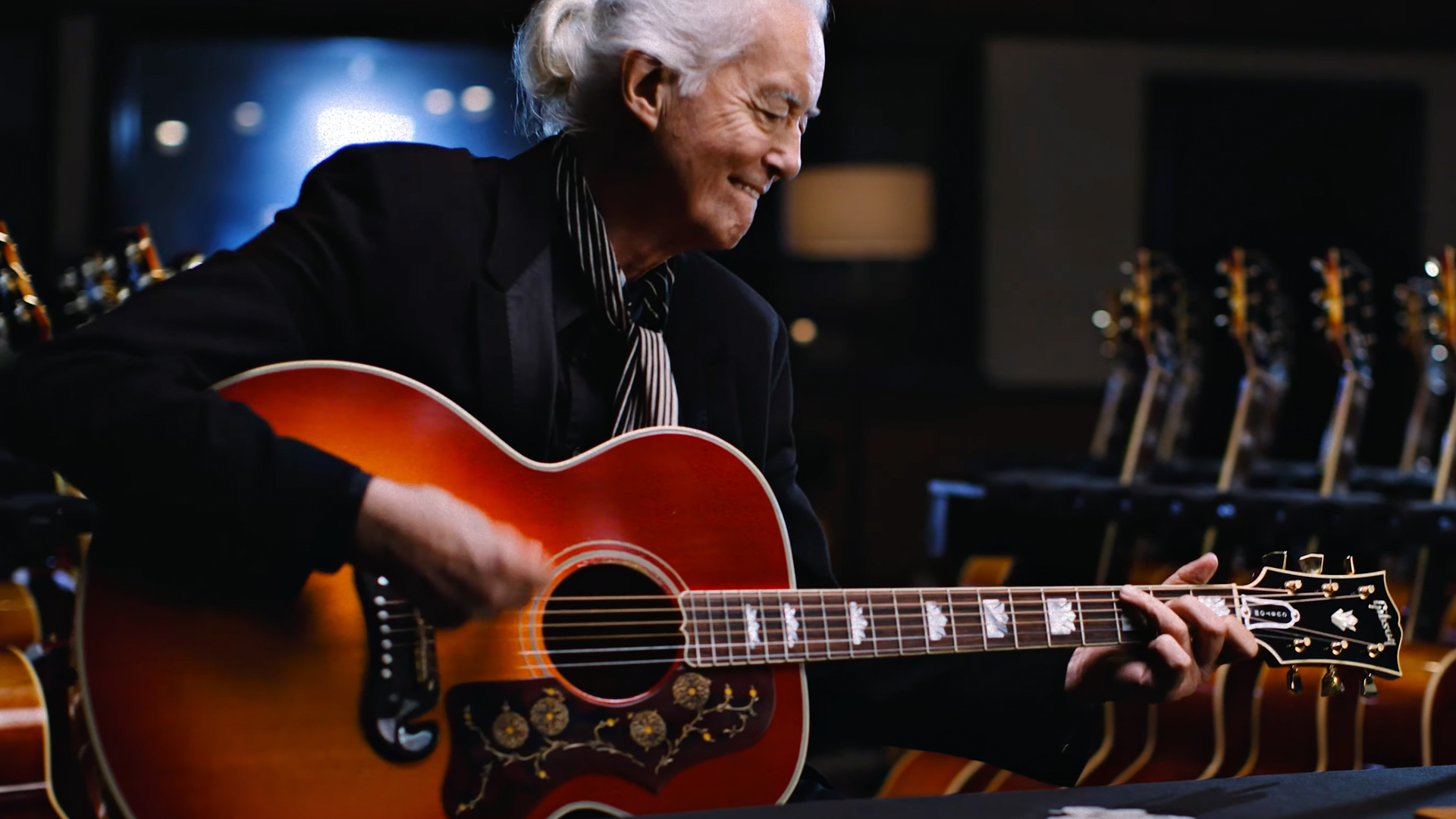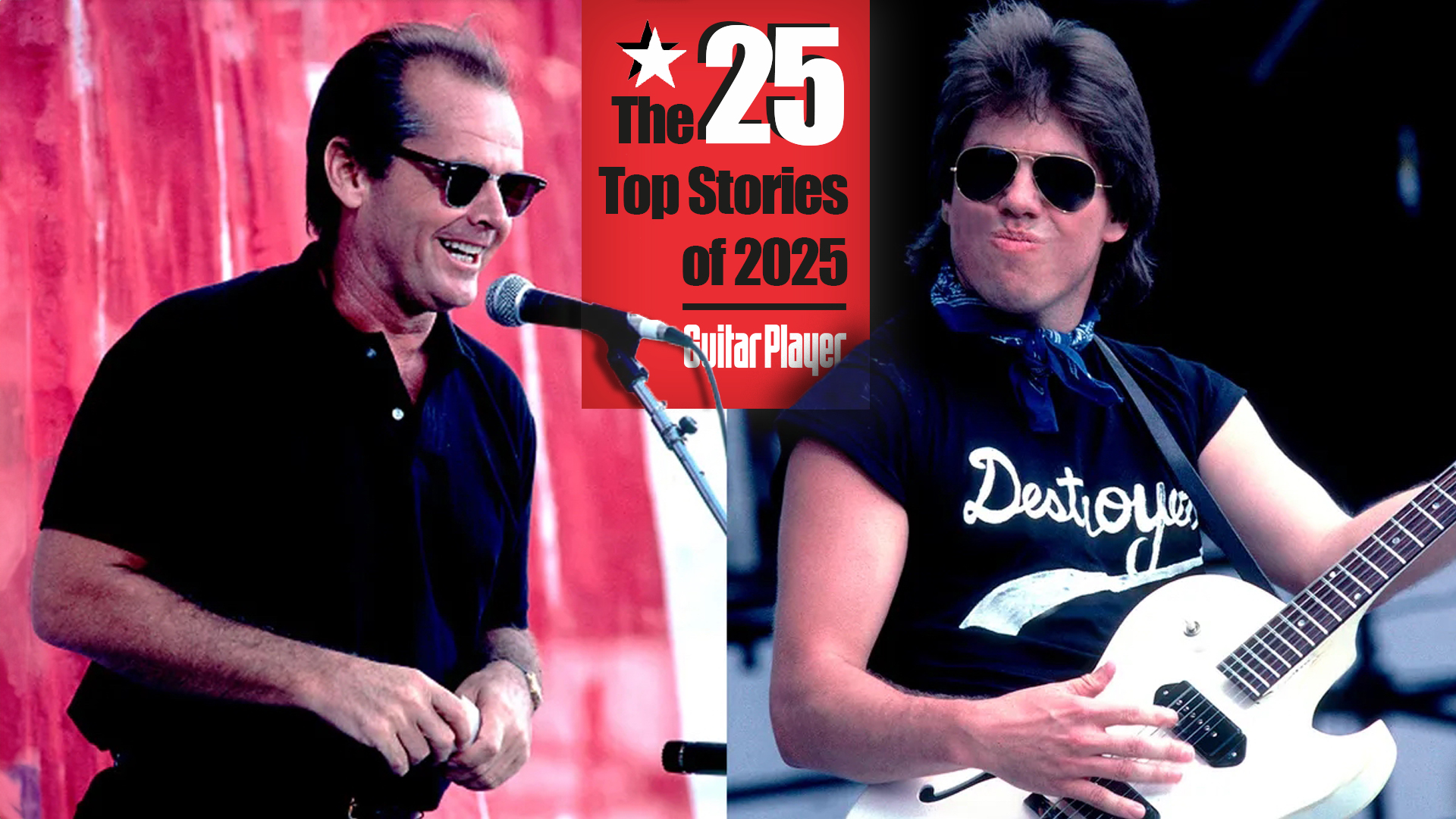“It's just a shame that I never really had a chance to talk with him or hear him. It would’ve been a thrill to see how he worked.” Jimmy Page on the player he admired most and the word he hates when it comes to describing rock guitarists
His picks included big names and under-the-radar six-stringers he feels deserve more recognition

Whenever a list of the world’s greatest guitar players is compiled, Jimmy Page makes the top bracket.
But who does he put in the upper echelon of his own greatest-guitar roster?
We know a few already. The Led Zeppelin guitarist, who was honored with a new Gibson signature SJ-200 acoustic guitar last month, has referred to many of his guitar heroes in various interviews over the years.
For example, Page was influenced early on by Elvis Presley guitarists Scotty Moore and James Burton, Gene Vincent, and blues guitarists Elmore James and Muddy Waters, to name a few.
But who among his peers did he feel was outstanding?
“Out of all the guitarists to come out of the 1960s," he once offered when asked about his contemporary favorites, "Beck, Clapton, [Alvin] Lee, Townshend and I are still having a go. That says something."
Page has also had praise for the great Elliott Randall, who played the solos on Steely Dan's "Reelin' in the Years."
All the latest guitar news, interviews, lessons, reviews, deals and more, direct to your inbox!
And, “in a totally different style,” Page offered “the guy who played on the Maria Muldaur single, "Midnight at the Oasis," Amos Garrett. He’s Les Paul oriented, and Les Paul is the one, really. We wouldn’t be anywhere if he hadn’t invented the electric guitar.”
But if one player tops Page's list — a guitarist who was at one point his contemporary — it's Jimi Hendrix.
“We’ve lost the best guitarist any of us ever had, and that was Hendrix,” he told Rolling Stone in March 1975, just five years after Jimi's death. “It is just kind of a shame that I never really had a chance to talk with him or hear him. I heard his records, naturally, but it would’ve been a thrill to see how he worked things out onstage. That’s quite another ballgame, as you know."
In his Rolling Stone chat, the guitarist, who helped launch London's new Gibson Garage earlier this year, singled out the one word he hates hearing when it comes to guitar players.
“The only term I won’t accept is ‘genius’,” he said. “It gets used far too loosely in rock and roll. When you hear the melodic structures of what classical musicians put together and you compare it to that of a rock and roll record, there’s a hell of a long way rock and roll has to go.
“There’s a certain standard in classical music that allows the application of the term ‘genius’, but you’re treading on thin ice if you start applying it to rock and rollers.”
A freelance writer with a penchant for music that gets weird, Phil is a regular contributor to Prog, Guitar World, and Total Guitar magazines and is especially keen on shining a light on unknown artists. Outside of the journalism realm, you can find him writing angular riffs in progressive metal band, Prognosis, in which he slings an 8-string Strandberg Boden Original, churning that low string through a variety of tunings. He's also a published author and is currently penning his debut novel which chucks fantasy, mythology and humanity into a great big melting pot.


